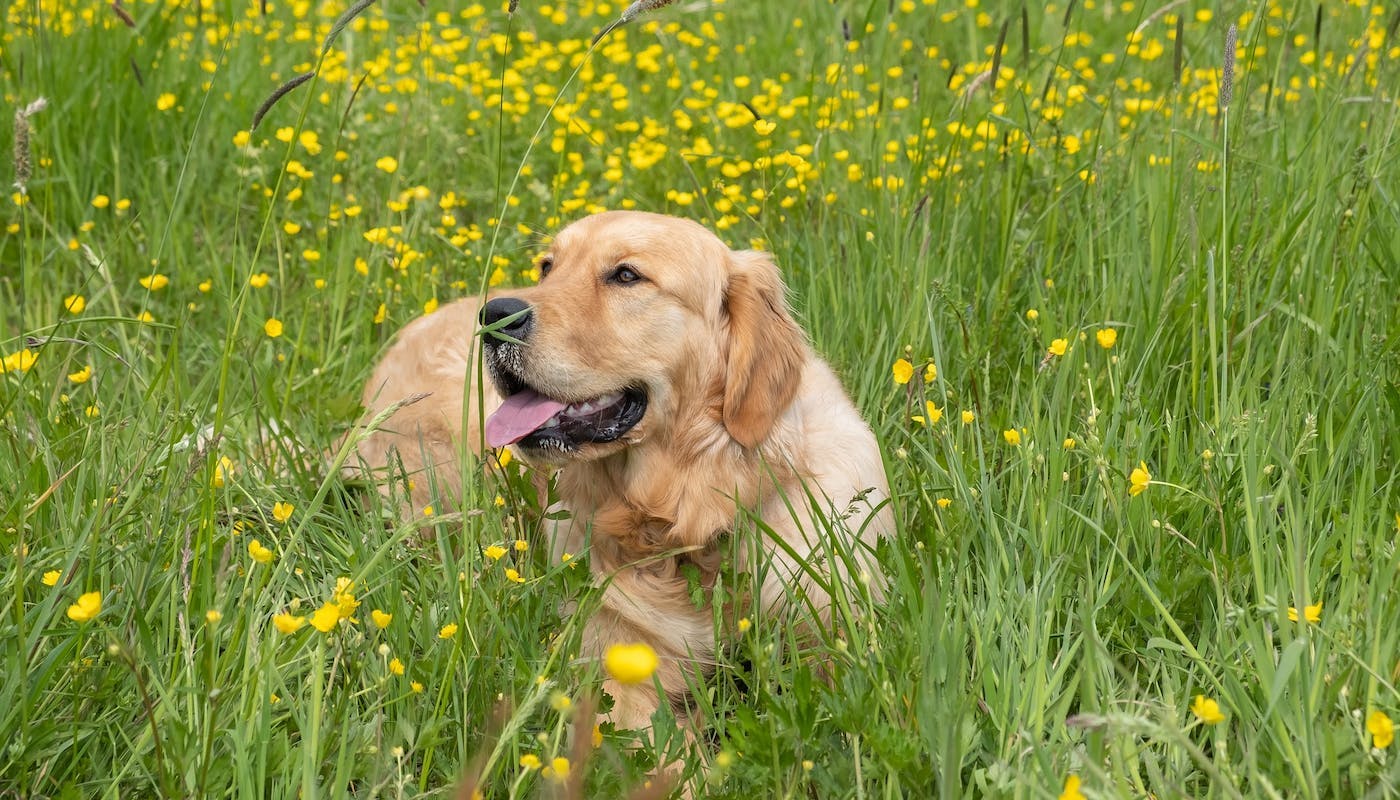Why Do Dogs Eat Grass And Vomit Bile?
All dog owners have probably experienced the mystery of their dog eating grass – often followed by vomiting. It can be frustrating, especially when you’ve just fed your dog a healthy and delicious meal at home, but the truth is that most dogs will try to eat grass now and again, despite its less than pleasant results.
So why do dogs eat grass and vomit bile afterwards? Is grass poisonous to dogs? And what should you do if your dog eats grass and vomits?
Can Dogs Eat Grass?
There is no clear answer as to why dogs eat grass despite it sometimes making them sick. But the truth is, grass isn’t actually bad for dogs (despite the vomiting) and most vets say that a bit of grass munching is perfectly normal doggy behavior.
Plants and grass have been found in the stomachs of wolves so scientists believe that it’s natural for dogs to occasionally eat it, too. But when grass has been treated with fertilizer, pesticides, or other products it can make dogs ill.
Why Do Dogs Eat Grass?
Even if grass isn’t technically unhealthy for dogs, some owners might wonder why their well-fed dog who eats a nutritious and balanced diet would want to eat grass in the first place. There are two answers to this:
Grazing
Like other animals, some dogs will graze. This means they might munch on grass as they wander about the garden or explore new areas outside. Usually this won’t lead to any kind of illness, and it’s often displayed by dogs when they’re bored or anxious. The chances are, if your dog often grazes the grass then they just like the taste.
If your dog grazes excessively they may have pica, a medical condition that makes dogs eat things that are not food – including grass. Dogs with pica might also eat trash, dirt, fabrics, and animal feces, which can lead to more serious illnesses.
Instinctive behavior
Because dogs can vomit after eating grass – and they know this – some scientists believe that dogs eat grass instinctively. For example, if they’ve eaten something that makes them feel ill or they have an upset stomach, they might eat grass as a way to force themselves to be sick.
If you notice your dog is eating grass very quickly and not really chewing it, this could be why. Some believe that the unchewed grass causes a tickle in their throats that activates the vomiting.
How To Stop Your Dog From Eating Grass
If you’re concerned about how often your dog’s eating grass, or if you’re simply fed up of clearing up after your vomit-prone pet, then you might want to try and break their habit. Some vets believe that the craving for grass is an indicator that dogs are lacking in certain nutrients found in the blades like fiber.
If you think this is the reason for your dog’s excessive grass eating, a vet will be able to advise whether their diet needs an adjustment and whether they are in fact lacking in certain nutrients.
What To Do If Your Dog Vomits After Eating Grass
In most cases, a dog that vomits after eating grass will recover quickly. Sickness after eating grass is an expected side effect and in most cases it is not a sign that there is anything else wrong with your pet.
However, since many grasses are treated with chemicals, it is possible that your dog could develop an illness from ingesting these. If your dog’s vomiting continues for an extended time, take them to the vet. Dogs can also pick up lungworm from eating slugs and snails in the grass, which will need to be treated by a medical professional.
Dog owners should also be aware of Bilious Vomiting Syndrome (BVS), which is caused when digestive fluids flow back into the stomach. If your dog is vomiting bile in the morning or at any other time when they’ve not eaten, the cause is more likely to be BVS. Small, frequent meals can usually help to heal BVS but if you’re still concerned, take them to the vet.
Do I Need To Take My Dog To The Vet When They’ve Eaten Grass?
In most cases, dogs that are sick after eating grass have usually passed whatever was causing them to feel unwell. While eating grass in itself is not a problem for dogs, continuous grazing can lead them to pick up and ingest bacteria, parasites, and chemicals which could lead to more serious issues.
If you’re concerned that your dog eats too much grass, or if they are continuously vomiting after eating grass, you might want to take them to the vet to diagnose pica or another condition.
